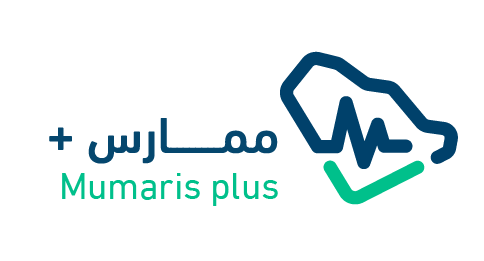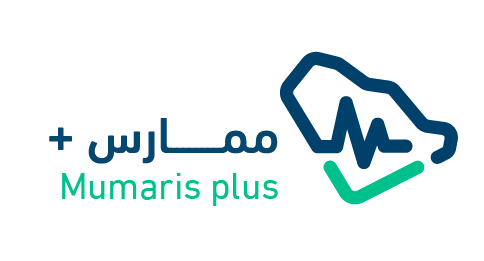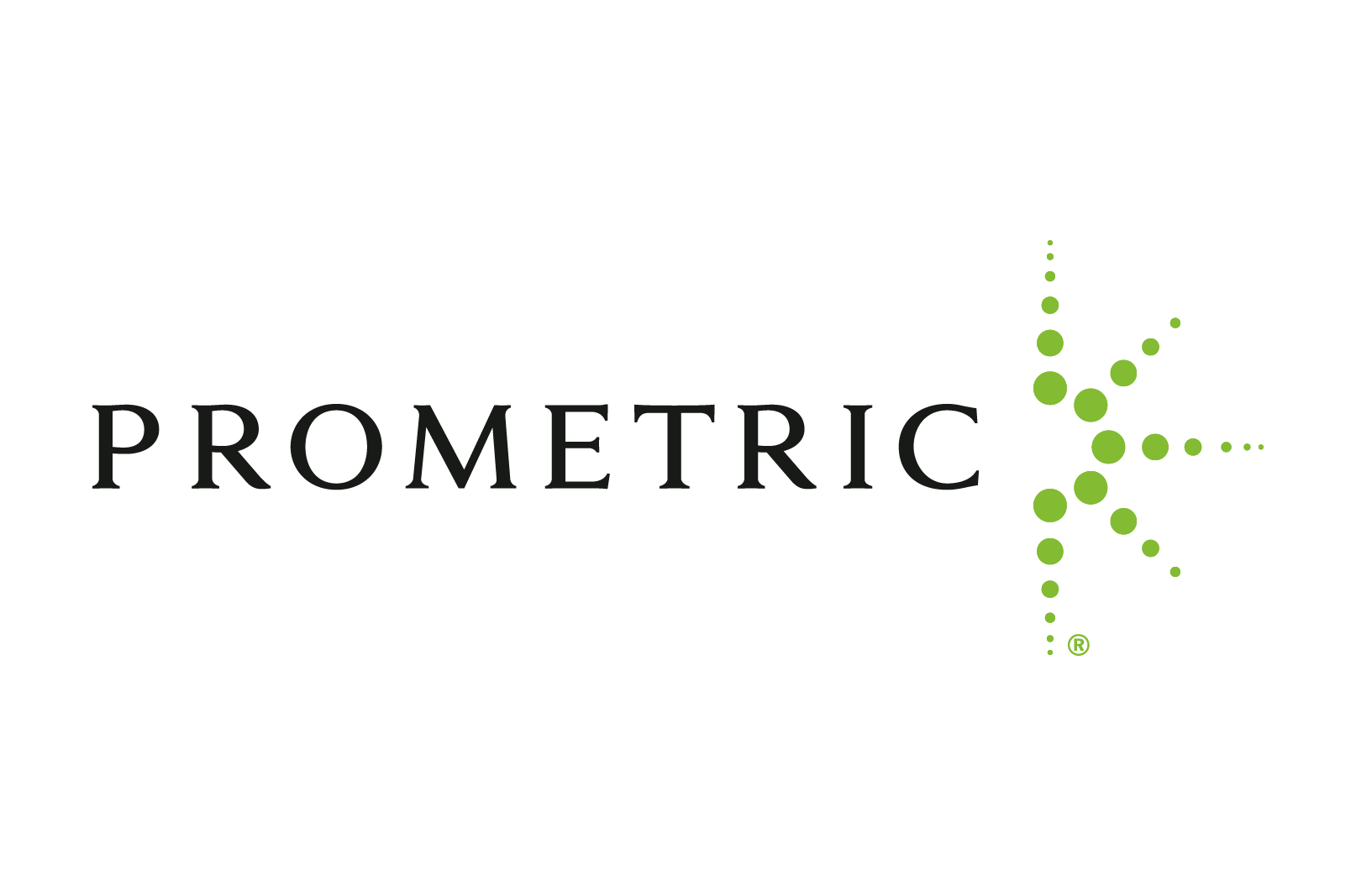Help us develop our services
How satisfied are you with the services provided on the portal of the Saudi Commission for Health Specialties?
About Mumaris Plus
Mumaris Plus is the unified portal for the services of the Saudi Commission for Health Specialties (SCFHS) for health practitioners in the Kingdom of Saudi Arabia. Through the Mumaris Plus portal,
practitioners can apply for all of the following services: You can apply and view the requirements and fees by clicking on the service

Professional Classification and Registration Requirements
The SCFHS has set several criteria in which accuracy and objectivity in evaluating the previous(training) and subsequent(experience)professional experience were considered, for obtaining certificates and vocational training, and for professionally evaluating the capabilities of their holders and classifying them accordingly
would you like to receive help accessing professional classification and registration requirements?
Specializations Description
It is a brief indicative description that helps in defining the minimum requirements and basic competencies required for the purposes of professional classification and registration in order to clarify SCFHS's services to all beneficiary categories.
Specialization Description Cards will be reviewed periodically to ensure that they are updated according to global and local changes in the health field, and we are pleased to receive the contributions of specialists in this review through submitting feedback or participating in the periodic review workshops through this link
* Subject to terms and conditions
A specialty concerned with dealing with diagnosis, treatment and prevention of infectious diseases. It includes transmitted or acquired diseases whether at the hospital or in the community for all age groups.
Theoretical, practical, and procedural knowledge of the following:
- Diagnosis, assessment and making a complete treatment plan including reviews and instructions of any infectious diseases.
- Providing urgent care for emergency cases.
- Etiology, epidemiology, normal history and pathology of all infectious diseases.
- Protection and prevention of infection and spread of infectious diseases.
- Infection control and prevention inside hospitals and health facilities. This includes follow-up and treatment of infection of healthcare professionals during work.
- Ordering laboratory investigations, medical imaging and taking samples and biopsies to reach the medical diagnosis.
- Drugs, antibiotics, antivirals, and antifungals. This includes limiting bacterial resistance to antibiotics.
- Counseling in premarital tests to prevent sexually transmitted diseases between spouses.
Obtaining, after bachelor of medicine and surgery, a qualification or a clinical training program specialized for physicians that is not less than 24 months. It should also fulfill the minimum acceptable limit of practicing the specialty according to the standards and regulations of the commission at the time of submitting the professional registration application.
Rheumatology is concerned basically with immune disturbances of the skeletal system, soft tissues, autoimmune and vascular diseases and inherited connective tissue disorders.
Theoretical, practical, and procedural knowledge of the following:
- Diagnosis, assessment and making a complete treatment plan including reviews and instructions of any diseases of rheumatological diseases.
- Differentiation of physiological or transient cases from pathological rheumatoid cases.
- Radiological diagnostic options and laboratory investigations related to rheumatological diseases.
- Management of emergency and critical cases related to rheumatological diseases.
- Treatment of common complications of rheumatological diseases.
- Prevention of rheumatological cases and promoting health.
Obtaining, after bachelor of medicine and surgery, a qualification or a clinical training program specialized for physicians that is not less than 24 months. It should also fulfill the minimum acceptable limit of practicing the specialty according to the standards and regulations of the commission at the time of submitting the professional registration application.
A specialty concerned with hematological diseases and disorders. It includes the study of the etiology, diagnosis, and treatment of hematological diseases. Moreover, it includes treatment of bleeding disorders, leukemias, RBCs disorders, bone marrow and stem cell transplantation. Further, it cares for physiological development of blood, bone marrow, blood vessels, spleen and lymph nodes.
Theoretical, practical, and procedural knowledge of the following:
- Diagnosis, assessment and making a complete treatment plan including reviews and instructions of any hematological diseases and disorders.
- Diagnosis, investigations and management of acute leukemia, myeloproliferative disorders, Hodgkin and non-Hodgkin lymphomas, hemorrhagic clots and disorders, Hemoglobinopathy and all benign hematological diseases.
- Reading, interpretation and acquaintance of hematological laboratory investigations and methods of coagulation tests. Further, it includes blood film preparation and interpretation, ability to perform bone marrow aspiration and biopsy and interpretation of bone marrow samples and biopsies.
- Performing lumbar puncture for diagnostic and therapeutic purposes and CSF assessment.
- Acquaintance of basic skills in stem cells transplant.
- Using chemotherapy, its mechanism of action, knowing short and long-term side effects and acquaintance of multimodal treatment, including using radiation therapy and surgery.
- Immunological mechanisms related to hematological oncological diseases, stem cell transplant, knowing the appropriate use of immunosuppressive agents and treatment of bacterial and fungal infections.
- Basic genetics in the way of inheriting different hematological and oncological diseases and general principles of genetics.
Obtaining, after bachelor of medicine and surgery, a qualification or a clinical training program specialized for physicians that is not less than 24 months. It should also fulfill the minimum acceptable limit of practicing the specialty according to the standards and regulations of the commission at the time of submitting the professional registration application.
A specialty concerned with dealing with the diagnosis, treatment and prevention of neurological diseases in individuals from the stage of embryo and until adolescence. This includes all congenital, hereditary and acquired neurological diseases including neurological tumors, chronic diseases and injuries.
Theoretical, practical, and procedural knowledge of the following:
- Diagnosis, assessment and making a complete treatment plan including reviews and instructions of any diseases of pediatric neurology.
- Providing urgent care for emergency cases of pediatric neurological diseases including injuries.
- Diagnosis and treatment of congenital malformations and disorders of pediatric neurology.
- Rehabilitation of patients including rehabilitation of their families and living with the disease.
- Diagnosis and treatment of all cases of neurological inflammations in pediatrics.
- Neurological medical imaging, EEG tests and the study of nerve conduction.
Obtaining, after bachelor of medicine and surgery, a qualification or a clinical training program specialized for physicians that is not less than 24 months. It should also fulfill the minimum acceptable limit of practicing the specialty according to the standards and regulations of the commission at the time of submitting the professional registration application.
A specialty concerned with diseases of nervous system that includes the brain, spinal cord, peripheral nerves, neuromuscular junctions and skeletal muscles.
Theoretical, practical, and procedural knowledge of the following:
- Diagnosis, assessment and making a complete treatment plan including reviews and instructions in neurology and applying knowledge of clinical, and biomedical sciences related to neurology.
- Basic sciences of anatomy, embryological development, physiology, pathology, and nervous system; in addition to developmental neurology, genetics and epigenetics of neurology.
- Basic skills in neurotherapy including behavioral therapy for neuromodulation, medical, rehabilitation, interventional neurological and surgical treatments.
- Basic knowledge of neurology, pathology and their etiology; in addition to clinical criteria including symptoms and signs, normal history, diagnosis of neurological cases and making the treatment plan.
- Rehabilitation for the treatment of neurological patients and pathophysiology and principles of brain death declaration.
- Basic skills in mental status examination, including tests and standard tests of cortical function. Further, it includes comatose patient examination, eye nerves examination and motion sickness test, etc.
- Neurological medical imaging, EEG tests and the study of nerve conduction.
Obtaining, after bachelor of medicine and surgery, a qualification or a clinical training program specialized for physicians that is not less than 24 months. It should also fulfill the minimum acceptable limit of practicing the specialty according to the standards and regulations of the commission at the time of submitting the professional registration application.
A specialty concerned with methods of tumors treatment by radiation through using ionized radiation (such as high-voltage x-rays or radionuclides) in the treatment of cancer.
Theoretical, practical, and procedural knowledge of the following:
- Diagnosis and assessment including reviews and instructions of any of the diseases that require using radiotherapy.
- Basic principles of radiation physics, radiobiology, and radiation safety.
- Clinical assessment and determining the stages of patients with cancer.
- Role of radiotherapy in the treatment of cancer.
- Importance of taking multiple and different approaches between medical specialties for the treatment of malignant tumors.
- The process through which treatment plans are made. This includes understanding the tumor size, considerations of normal histology, and normal history of the disease.
- Implementation and verification of radiotherapy plans for patient with cancer.
Obtaining, after bachelor of medicine and surgery, a qualification or a clinical training program specialized for physicians that is not less than 24 months. It should also fulfill the minimum acceptable limit of practicing the specialty according to the standards and regulations of the commission at the time of submitting the professional registration application.
A specialty concerned with treatment of hematological diseases and tumors of pediatrics, especially for treatment of pediatrics starting from neonates until young youth.
Theoretical, practical, and procedural knowledge of the following:
- Cases of Leukemia and lymphomas of pediatrics and their methods of diagnosis and treatment.
- Cases of stem cell transplant and their complications.
- Cases of non-malignant hematological diseases and their methods of diagnosis and treatment.
- Cases of renal, nervous system, bone and tissue tumors, etc. of pediatrics and methods of their management.
- Side effects of chemotherapy and radiotherapy.
- Management of chronic and acute pains.
- Radiological diagnostic options and laboratory investigations related to pediatric tumors.
Obtaining, after bachelor of medicine and surgery, a qualification or a clinical training program specialized for physicians that is not less than 36 months. It should also fulfill the minimum acceptable limit of practicing the specialty according to the standards and regulations of the commission at the time of submitting the professional registration application.
A specialty concerned with tumors and is concerned with their diagnosis, determining their growth and development, their treatment, and how to prevent them. This includes making a treatment plan for the patient and determining the treatment objectives. Moreover, it includes all cancers and solid tumors of adults.
Theoretical, practical, and procedural knowledge of the following:
- Diagnosis, assessment and making the complete and appropriate treatment plan including reviews and instructions of all types of tumors and their medical stages.
- Obtaining medical history of the patient including detailed family history of tumors, performing full clinical examination, and determining the necessary laboratory investigations and imaging to identify the diagnosis and make the appropriate treatment plan.
- Associated diseases related to the patient and their effect on any therapeutic intervention of tumors.
- Related clinical procedures including, for example, bone marrow aspiration and biopsy and performing lumbar puncture, etc.
- Contact with other specialties in oncology departments such as surgery, radiation and palliative therapy and pathology to make an integrated treatment plan based on the available and best resources according to evidence-based medicine.
- Using chemotherapy and immunotherapy and their mechanism of action. This is in addition to knowing short and long-term side effects, toxicity level and response to treatment using appropriate clinical assessment and acquaintance of multimodal treatment, including using radiation therapy and surgery.
- Supportive and palliative measures in tumor therapy.
- Complications and side effects of tumors, their treatments, acquaintance of emergency oncology cases and how to manage them and applying urgent and early intervention.
Obtaining, after bachelor of medicine and surgery, a qualification or a clinical training program specialized for physicians that is not less than 24 months. It should also fulfill the minimum acceptable limit of practicing the specialty according to the standards and regulations of the commission at the time of submitting the professional registration application.
A specialty concerned with the study, diagnosis and treatment of psychiatric disorders and their prevention. It includes different disturbances related to mood, emotions, behavior, cognition and understanding. Further, it includes all ages whether such disorders exist alone or along with other medical disorders.
Theoretical, practical, and procedural knowledge of the following:
- Ability to diagnose, assess and make the complete treatment plan including reviews and instructions of any psychiatric disorders.
- Acquaintance of basic skills in applying knowledge of clinical and biological medical sciences; in addition to cases of medical jurisprudence related to psychiatry.
- Acquaintance of related sciences such as normal and abnormal psychology, genetics, and neurology.
- Making integrated psychological and social biological treatment plans for patients throughout life. Such plans will extend as the disease advances. Moreover, to determine the priorities of treatments with explaining their risks and advantages. This is in addition to the rationale of the suggested treatment.
- Recognizing and managing patients liable for the risk of harming oneself or others, intervening to reduce the risks, in addition to recognizing emergency psychiatric cases and managing them effectively.
- Methods of psychiatric treatment including psychiatric drugs, patterns of behavioral, family and collective treatment, in addition to methods of nervous stimulation and others.
- Risks and advantages of complementary and alternative care methods and their effect on psychiatric care.
Obtaining, after bachelor of medicine and surgery, a qualification or a clinical training program specialized for physicians that is not less than 24 months. It should also fulfill the minimum acceptable limit of practicing the specialty according to the standards and regulations of the commission at the time of submitting the professional registration application.
A specialty concerned with respiratory care, diagnosis and treatment of pulmonary diseases for different age groups, and management of critical cases of pulmonary diseases.
Theoretical, practical, and procedural knowledge of the following:
- Full knowledge of all theoretical sciences related to respiratory care medicine.
- Diagnosis, assessment, and making a complete treatment plan including reviews and instructions of pulmonary diseases.
- Reading and interpreting all diagnostic tests related to the respiratory system.
- Management of emergency and critical cases related to pulmonary diseases.
- Knowing all types of physiological and pathological diseases and all pulmonary diseases, how to diagnose and make treatment plans for them.
- Prevention of Cardiovascular diseases and promoting health.
- Knowing surgical and non-surgical interventions in the specialty.
Obtaining, after bachelor of medicine and surgery, a qualification or a clinical training program specialized for physicians that is not less than 24 months. It should also fulfill the minimum acceptable limit of practicing the specialty according to the standards and regulations of the commission at the time of submitting the professional registration application
Certificate Verification
The process of verifying the authenticity of certificates for all health practitioners holding certificates from outside the Kingdom of Saudi Arabia, by contacting the certificate-issuing body by DataFlow, the international and specialized company. This aims to found a safe health practice that is not flawed by any forgery or falsification or the like, which is considered to be one of the basic criteria for the accreditation of hospitals and health facilities by local and international bodies to have practitioners who are capable of practicing the health profession efficiently and in a safe manner
Continuing Professional Development
Continuing Professional Development enhances the concept of lifelong learning commitment and enabling the practitioner to be responsible for their professional and ethical development towards their career.
Calendar of professional development activities
Exams
Postgraduate Program Exams in SCFHS aim to assess the level of practitioners and develop them to ensure that they can practice their specialty efficiently and competently.

Mumaris e-Services
Rules and Regulations
Frequently Asked Questions
Check Frequently Asked Questions About Practitioner





